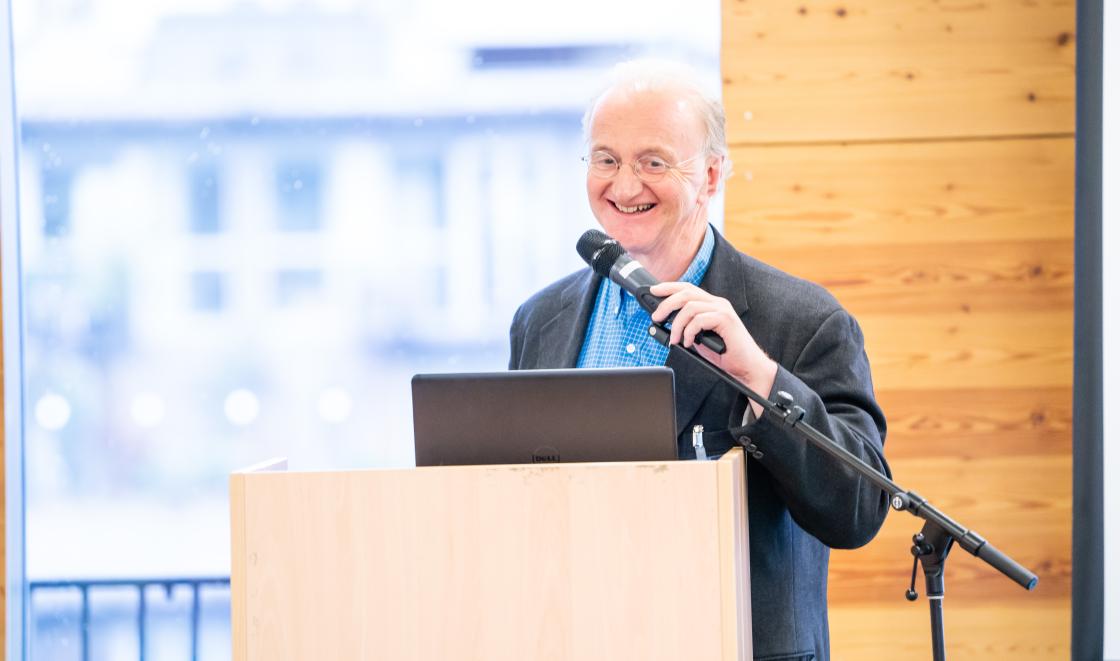Q: You are widely recognised for your mentorship and support for research colleagues. What qualities do you think make a successful mentor?
I think first, it’s the active wish by the mentor to support others in fulfilling their own research potential and going on to thrive in their careers. This is a two-way street as it’s also a vicarious form of career reward and satisfaction for the mentor. This is diametrically opposed to seeing junior staff as research fodder to be exploited for one’s own greater glory.
Second, I think it is important to try to remember, from one’s own career, just how fragile is the self-confidence of most early career researchers, and therefore how much active support and encouragement is needed.
Third, I think it’s important to be straight, or even blunt, about how hard it can be to succeed in a research career. Some stages, especially just after finishing a PhD, or when wanting to move from a short-term research post to a long-term academic position, can be very difficult to navigate. So this often means encouraging flexibility for the junior person, to meander or zig-zag between career steps, while trying to maintain forward momentum.
Q: What have been some of the challenges of leading the ARC collaboration and what have you learnt?
I think that my experience of leading our ARC, as well as other similar roles such as a University Head of Department, have taught me a huge amount. For example, it can be tough to take difficult decisions, and it’s lonely to try to take on such responsibilities alone. I find it more useful for a consortium to have a high degree of delegation of budgets and responsibilities to senior colleagues. What the former CEO of SLaM, Stuart Bell, would call ‘Freedom within a Framework’. I also find that for these types of collaborations, allocating very clear responsibilities, for example to Executive and Board teams, is very helpful. I’m also a great believer in the ‘Golden Rule’ – i.e. to treat others as you would like to be treated yourself. One day you may find that the junior staff member you were only recently supervising has become your boss!
Q: During your career in research and psychiatry what have been the most important advances and developments?
There are many, so I will mention just a few. First the creation of the NIHR has simply transformed the field that was called health services research (HSR), and which is now more often referred to as applied health research. Whereas HSR used to be seen as a second or third-rate type of research by esteemed colleagues undertaking lab-based science, the scale of resources made available by NIHR has elevated our work to the highest rank.
Within my own field of mental health I would mention three key advances. First, is the fact that we have fundamentally transformed mental health care in many high-income countries over in recent decades from a system based on dehumanising asylums to one delivering a flexible blend of community and hospital care.
Second, I attach great importance to the continuing and powerful influence of the evidence-based medicine paradigm. We must know, and invest in, what works to help people with conditions and disabilities.
Third, I would emphasise the paradigm change from paternalism to shared decision making in the field of mental health, from research to policy to practice. This is work in progress, but it’s vital to humanise relations in every domain between people with mental health conditions and other people dedicated to achieving better mental health.
Q: You’ve travelled around the world as part of your work in global health. Is there one place that you feel particularly connected to?
This must be Italy. The reason is that at an early stage in my career I met a colleague in Verona with very similar research and clinical and policy interests – namely to innovate in creating community care in mental health, and to assess its impact. Professor Michele Tansella and I went on to write 50 papers and seven books together over the following twenty years. Unusually these days we only wrote when we were working directly together – either in Verona or London. I think the work we did together was much better than what either of us could have achieved alone. Although we’re both workaholics we did visit a Soave vineyard in Veneto – once!
Q: What are you most looking forward to doing next?
It’s perhaps more accurate to say that I’m taking my pension at Easter this year, rather than to say that I’m going to retire. I will enjoy having more flexibility in spending time with my family. I plan to continue to offer teaching and mentorship through my Emeritus Professor position at King’s College London, both to colleagues in London and in other places worldwide. I will continue my work with a number of non-governmental organisations, including my collaboration with the World Health Organization. As for other exciting challenges, we shall see!
